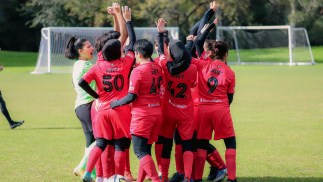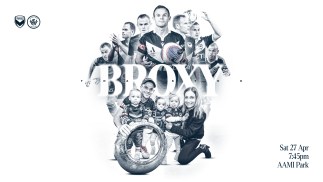In a bid to reduce death and serious injury on regional and rural roads the Mallee township of Speed is leading an Australian-first road safety campaign which will see them change their name to SpeedKills.
In a bid to reduce death and serious injury on regional and rural roads the Mallee township of Speed is leading an Australian-first road safety campaign which will see them change their name to SpeedKills.
Launched today, the campaign aims to raise awareness of the dangers of speed and engage Victorians from every corner of the state in an initiative that will run primarily online.
The “Rename Speed” campaign centres around a Facebook page (www.facebook.com/speedkills) featuring videos and photos of locals from the tiny town, population 45, urging all Victorians to slow down.
Visitors to the Facebook page are encouraged to hit the “likes this” symbol because the town will only change their name if 10,000 likes are achieved.
When the 10,000th ‘like- is recorded, the town will change its name and the TAC will donate $10,000 to the Speed Lions Club to distribute around the community in areas of need, such as the local hospital and school.
The campaign hopes to reach out to a slice of the 500 million active users of Facebook world-wide with the important road safety message.
TAC Acting CEO, Phil Reed, said reducing the incidence of speed is the focus for the TAC this year because about 30 per cent of all fatal crashes can be attributed to speed, costing Victoria in excess of 1 billion dollars.
“As a community we have made drink driving the most socially unacceptable behavior, now it is time for speeding to be made just as unacceptable,” Mr Reed said.
Rural and regional road deaths spiked last year – with 147 of the 291 fatalities occurring on roads outside of Melbourne – 16 more than in 2009 – and the people of Speed have thrown their support behind this important message.
Speed farmer and campaign identity, Phil Down, said his town was proud to be involved with the campaign.
“We really need everyone to get onto our Facebook page and show their support,” Mr Down said.
“By liking us on Facebook, you are showing us that you are behind our cause to reduce speeding on rural roads, and promising to us that you will stick to the speed limit.
“Speed Kills, and we hope our involvement in this campaign will further that message and really make a difference.”
For further information please contact: Sarah Campbell on 0429 294 262.
Facts about the Rename Speed campaign:
Speed, the town:
Speed is in north-central Victoria, 410 km from Melbourne and 143km from Ouyen.
Speed-s population is about 45, however there are a number of families who live in surrounding areas on properties.
Speed is part of the Shire of Yarriambiack, whose offices are based in Warracknabeal.
The main industry for the area is wheat farming.
The town-s Lions Club has about 20 members, and each year holds a Machinery Field Days attended by about 7000 people.
The town has a police station which is manned by one Senior Constable.
There are two businesses in town, a general store and a service station.
Children from Speed attend primary school at nearby town, Tempy, and high school students attend travel to Ouyen.
The major highway running through Speed is the Sunraysia Highway. The speed limit through the town is 80 km/hour.
Rural and regional road toll facts, figures and stats about speed:
147 fatalities occurred on rural and regional roads in 2010 (according to provisional road toll figures) – 16 more than in 2009.
There were two fatalities in the Swan Hill Police Service Area (which Speed is a part of) in 2010.
Speed is the cause of about 30 per cent of all fatal collisions.
It is estimated speed-related death and serious injury costs the Victorian community about 1.3 billion dollars every year.
Research suggests that the risk of involvement in a casualty crash doubles for every five km/h traveled over 60 km/h.
TAC research released last year found that regional motorists believe traveling just over the speed limit in higher speed zones is acceptable for competent drivers.
The research also suggested that regional motorists are less likely to wear a seatbelt and are more inclined to drink and drive because it is the easiest way for them to get home.
A study run by the TAC into socially acceptable behaviors concluded that Victorians deem drink driving as the most socially unacceptable behavior. However, speeding ranked more socially acceptable than picking your nose in public.



